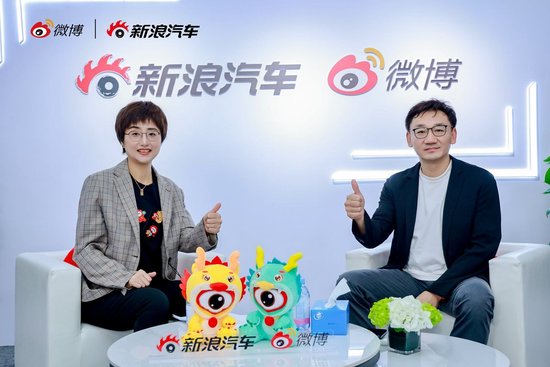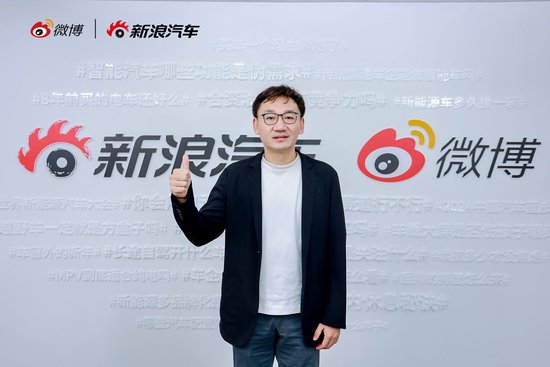On November 15, the 22nd Guangzhou International Auto Show opened. The automotive market has entered a phase of stock competition. Chinese new energy vehicles, focused on electrification and intelligence, drive high-quality development in the industry. This year’s auto show continues with the theme “New Technology, New Life.” It serves as a benchmark for the development of the Chinese automotive market. The show features 78 global debuts, including 6 from multinational companies. A total of 1,171 vehicles are on display, with 512 being new energy vehicles. They showcase new technologies and innovations for the new era. Executives shared their views. Xiaomi Auto Vice President and Product General Manager Yu Liguo stated that 2024 will be a year of technological breakthroughs for China’s automotive industry. The development of electrification over the past decade has matured significantly. The trend of intelligent new energy vehicles is unstoppable and will transform the automotive sector.
Chen Yao: Hello everyone. Today, we are lucky to have Yu Liguo, Vice President and General Manager of Product at Xiaomi Auto, with us. Yu Liguo: Hello, friends from Sina. Chen Yao: We know that since Xiaomi Auto entered the automotive industry, its exhibition booths have always attracted huge crowds, whether at major or minor car shows, including the Tianjin Auto Show. Can you tell us about the current state of the Xiaomi Auto booth since this morning? Yu Liguo: It was packed. Just now, Lei Jun visited the booth next door. We shared the space with Xiaopeng, and it was a sea of people. Chen Yao: Does this crowd bring you any challenges? Yu Liguo: It’s overwhelming support. I am very grateful to our loyal fans. When Lei Jun delivered the first car, he felt deeply moved. On March 28, we launched the car. Many people hadn’t seen or driven it before they placed orders. As a founder, he felt immense gratitude towards our fans, so he insisted on delivering the cars himself. We didn’t expect the “Billionaire CEO Opens the Door” phenomenon to happen. Chen Yao: Lei Jun’s approaches are unprecedented in the traditional automotive industry. His direct engagement with users strengthens the bond. This is a great experiment and reference for traditional automakers. Today, we also see that the market share of new energy vehicles has surpassed that of fuel vehicles for the first time, exceeding 50%. You have experience in both traditional and new energy vehicle companies. Now at Xiaomi, how do you view the development trend of China’s new energy vehicles in 2024? Can you predict the state of new energy development in 2025? Yu Liguo: Let’s talk about 2025. It’s hard to predict, but in a new industry, the journey is often long. We may go through a transition period before the general public fully accepts and embraces it. I believe the past decade of accumulation in China’s automotive industry is crucial. Both the technology from manufacturers and the entire supply chain have developed significantly. Users have fully accepted this change. They now recognize that smart electric vehicles offer a better experience. The past ten to twenty years saw rapid growth in any new industry. In recent years, we climbed to over 50% market share. This trend suggests that smart electric vehicles will reshape the automotive industry. As users, once we drive a smart electric vehicle, returning to traditional cars becomes difficult. The experience is vastly superior. In 2024, each automaker perceives the market differently. Some believe Chinese companies are overly competitive. They claim China offers the highest technology at the lowest prices. I think it’s manageable. 2024 should mark a technological explosion in China. After over a decade of development, electric vehicle technology has matured. In the last two to three years, efforts in automation have led to significant breakthroughs. Previously, we relied on rules to write algorithms for assisted driving. We tested extensively, addressing various corner cases. However, corner cases are always challenging to resolve completely. Today, with end-to-end systems and large models, the potential for smart driving has no limits. People now consider smart driving an essential feature in cars. I appreciate China’s robust industrial environment. This technological explosion will foster further development. Chen Yao: Do you agree that automation is a major tool for widening the competitive gap? Yu Ligguo: Yes, last year, several leaders stated that the past decade focused on electrification, while the next decade will focus on automation. Chen Yao: Although we all face intense competition, Xiaomi’s entry has significantly amplified this effect. We see Lei Jun and previous leaders active on Weibo. I notice you speak less. How do you view executives’ social media presence in enhancing product and brand value? Yu Liguo: Xiaomi has this innate quality. From day one, Xiaomi grew on social media. If you’ve seen Lei Jun’s annual speeches or read his “Thoughts on Xiaomi’s Entrepreneurship,” you know he excelled at Kingsoft. However, the internet era confused him. A software company seemed to lag behind. He conducted extensive reviews and rethought his approach. He started Xiaomi with the goal of “making friends with users and creating the coolest products.” Initially, Xiaomi focused on software, specifically MIUI. The team actively engaged with users on forums, gathered feedback, and iterated new versions for testing. After user testing, the team quickly improved. Early growth drew significant strength from users, shaping Xiaomi’s culture, which emphasizes “making friends with users.” Xiaomi thrives on social media. This trait brings immense pressure but also great motivation. First, during product definition, we hear users’ voices directly and swiftly. We quickly identify core users and their needs. Second, after a product launches, it aids in operations and boosts service satisfaction. I recall an incident when Lei Jun posted on Douyin. Our users are very demanding. When a product has issues, they skip the 400 hotline and immediately criticize Lei Jun on Weibo. We must act fast. Chen Yao: That day, it even trended. Lei Jun said he would push the factory to fix it. Overall, Xiaomi indeed grows on social platforms, which also brings immense traffic. We grow together. I look forward to seeing Mr. Yu actively share on Weibo. Yu Ligao: We will work hard. Creating products requires daily internal reflection. I often check Weibo secretly.

